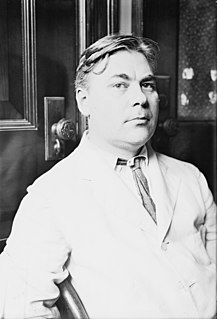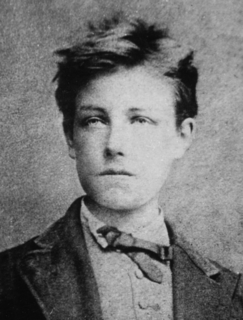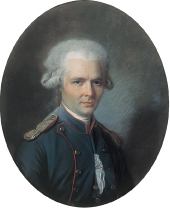A Quote by Diana Gabaldon
I will find you," he whispered in my ear. "I promise. If I must endure two hundred years of purgatory, two hundred years without you - then that is my punishment, which I have earned for my crimes. For I have lied, and killed, and stolen; betrayed and broken trust. But there is the one thing that shall lie in the balance. When I shall stand before God, I shall have one thing to say, to weigh against the rest." His voice dropped, nearly to a whisper, and his arms tightened around me. Lord, ye gave me a rare woman, and God! I loved her well.
Quote Topics
Against
Arms
Around
Balance
Before
Betrayed
Broken
Dropped
Ear
Earned
Endure
Find
Gave
God
Her
His
Hundred
Hundred Years
I Promise
Lie
Lied
Lord
Loved
Me
Must
Nearly
One Thing
Promise
Punishment
Purgatory
Rare
Rest
Say
Shall
Stand
Stolen
The One Thing
Then
Thing
Trust
Two
Voice
Weigh
Well
Which
Whisper
Will
Without
Without You
Woman
Years
Related Quotes
He that plays the king shall be welcome- his Majesty shall
have tribute of me; the adventurous knight shall use his foil and
target; the lover shall not sigh gratis; the humorous man shall
end his part in peace; the clown shall make those laugh whose
lungs are tickle o' th' sere; and the lady shall say her mind
freely, or the blank verse shall halt fort.
For a man can lose neither the past nor the future; for how can one take from him that which is not his? So remember these two points: first, that each thing is of like form from everlasting and comes round again in its cycle, and that it signifies not whether a man shall look upon the same things for a hundred years or two hundred, or for an infinity of time; second, that the longest lived and the shortest lived man, when they come to die, lose one and the same thing.
Remember the words of Christ: "Ask, and it shall be given you; seek, and ye shall find; knock, and it shall be opened unto you." These words are literally true, not figures or fiction. They were the outflow of the heart's blood of one of the greatest sons of God who have ever come to this world of ours; words which came as the fruit of realisation, from a man who had felt and realised God himself; who had spoken with God, lived with God, a hundred times more intensely than you or I see this building.
Between the years of ninety-two and a hundred and two, however, we shall be the ribald, useless, drunken, outcast person we have always wished to be. We shall have a long white beard and long white hair; we shall not walk at all, but recline in a wheel chair and bellow for alcoholic beverages; in the winter we shall sit before the fire with our feet in a bucket of hot water, a decanter of corn whiskey near at hand, and write ribald songs against organized society... We look forward to a disreputable, vigorous, unhonoured, and disorderly old age.
... He didn't know how to say good-bye. His throat ached from the strain of holding back his emotions. “I don't want to leave you,” he said humbly, reaching for her cold, stiff hands. Emma lowered her head, her tears falling freely. “I'll never see you again, will I?” He shook his head. “Not in this lifetime,” he said hoarsely. She pulled her hands away and wrapped her arms around his neck. He felt her wet lashes brush his cheek. “Then I'll wait a hundred years,” she whispered. “Or a thousand, if I must. Remember that, Nikki. I'll be waiting for you to come to me.
I am stealing the golden vessels of the Egyptians to build a tabernacle to my God from them, far far away from the boundaries of Egypt. If you forgive me, I shall rejoice; if you are enraged with me, I shall bear it. See, I cast the die, and I write the book. Whether it is to be read by the people of the present or of the future makes no difference: let it await its reader for a hundred years, if God himself has stood ready for six thousand years for one to study him.
'Now we are the sons of God'. This is the starting point of adoption. However, 'it does not yet appear what we shall be: but we know that, when He shall appear, we shall be like Him; for we shall see Him as He is' (I Jn. 3:2). This is the perfection of adoption of sons and renewal which God bestowed on us in Christ, and of which John says in his Gospel that, 'Christ gave power to become the sons of God, even to them that believe on His name: which were born, not of blood, nor of the will of the flesh nor of the will of man, but of God' (Jn. 1:12-13).
There shall be poets! When woman's unmeasured bondage shall be broken, when she shall live for and through herself, man--hitherto detestable--having let her go, she, too, will be poet! Woman will find the unknown! Will her ideational worlds be different from ours? She will come upon strange, unfathomable, repellent, delightful things; we shall take them, we shall comprehend them.
I shall possess this woman; I shall steal her from the husband who profanes her: I will even dare ravish her from the God whom she adores. What delight, to be in turns the object and the victor of her remorse! Far be it from me to destroy the prejudices which sway her mind! They will add to my happiness and my triumph. Let her believe in virtue, and sacrifice it to me; let the idea of falling terrify her, without preventing her fall; and may she, shaken by a thousand terrors, forget them, vanquish them only in my arms.
He dropped the pretense, and dropped his head, so his brow came to rest against the sun-warmed top of hers. His arms went around her and drew her in, and Karou and Akiva were like two matches struck against each other to flare starlight. With a sigh, she softened, and it was pure homecoming to melt against him and rest.
It is not a terrible thing to a wretched soul, when it shall lie roaring perpetually in the flames of hell, and the God of mercy himself shall laugh at them; when...God shall mock them instead of relieving them; when none in heaven or earth can help them but God, and he shall rejoice over them in their calamity

































